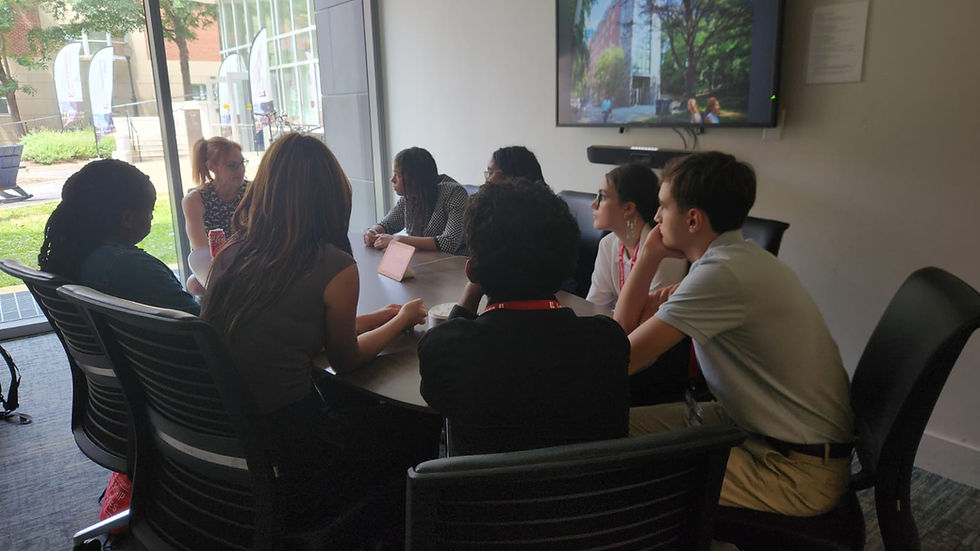From Lab Bench to Real-World Medicine
- Marshall Bailly
- Jul 4, 2025
- 2 min read
This afternoon brought some of the most hands-on and inspiring moments of our Advanced Medical Neuroscience Internship yet! Our interns dove headfirst into the world of practical neuroscience research and discovered what it truly means to be at the forefront of medical innovation.
Armed with scalpels and an insatiable curiosity, our interns carefully explored every fold, structure, and pathway of the mammalian brain while dissecting sheep brains under the tutelage of Dr. Khan. The level of scientific precision and genuine fascination they demonstrated was extraordinary. You could hear the "aha!" moments echoing through the room as students connected the morning's theoretical knowledge with the tangible structures they were now examining firsthand. Watching them identify the hippocampus, trace neural pathways, and discuss the functional significance of different brain regions reminded us that these aren't just interns; they are emerging scientists who are already thinking critically about complex neurological concepts.

The afternoon reached another incredible peak during our "Day in the Life of a Neurologist" panel featuring Dr. Michael Okun and Captain Rick Schena. These leading experts in movement disorders and deep brain stimulation shared not just their scientific expertise but their real-world experiences treating patients and pushing the boundaries of neurological medicine. Captain Schena brought a particularly powerful perspective, sharing his personal journey living with Parkinson's disease, from his career as a commercial airline pilot to his diagnosis and treatment. Dr. Okun engaged our interns in interactive diagnostic sessions using videos of past patients he's treated and published in prestigious medical journals, with the story of a young boy named Christopher with dystonia being especially touching and memorable. The combination of clinical expertise from Dr. Okun, alongside Captain Schena's patient perspective, gave our interns a comprehensive view of neurological medicine from all angles. The panel sparked passionate discussions about career paths, research opportunities, and the responsibility that comes with advancing medical knowledge.
As the evening wound down with Georgetown exploration time, the interns bonded with their teams over their shared discoveries from the day. Walking through the popular Washington, DC neighborhood, they're forming connections with future colleagues in the medical field, building relationships that will last throughout their careers.
Tomorrow brings even more exciting challenges as they delve into neurodiversity, global biosecurity, and ethics in neuroscience. The foundation they've built today will serve them well as they tackle these complex topics.





Comments